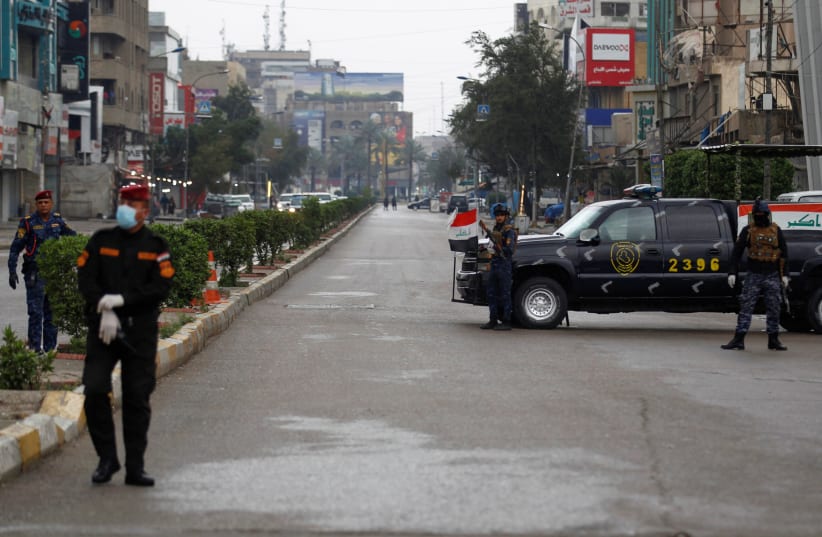On May 17 Lina Attallah, a journalist in Egypt, was reportedly arrested. She was detained while interviewing an activist. According to France 24 her arrest and targeting of other journalists in Egypt has increased in recent years. Mada Masr, an Egyptian online outlet, is one off those places affected. Egypt also went after a Guardian reporter after reports about coronavirus in the country.
Turkey, a key US NATO ally, remains the Middle East’s largest jailor of journalists. It has expelled foreign reporters and jailed those who disagree with the government. Pro-government media has expanded as the state seeks more and more control and as there is an increasingly small space for criticism of the government. The leading AKP party increasingly targets any critics as “supporters of terrorism,” including environmental activists or investigative reporters and minorities, or those who simply oppose Turkey’s militarism. Journalists are arrested or harassed almost every week in Turkey. On May 8 an Istanbul court ordered the arrest of 8 journalists for a report about the country’s intelligence organization. They face up to 17 years in prison. On may 17 another report notes that Turkey sought to arrest 21 journalists that had been in prison since March 2017 but had been released by a court. Turkey kept one journalist, whose “crime” was being a design director at Zaman, in solitary confinement for 800 days.
Meanwhile in Iraq on Monday members of the pro-Iranian paramilitary Hashd al-Shaabi attacked the Saudi-based MBC media in Baghdad. They assaulted it after it dared to air a program critiquing the Hashd and accusing Iranian-backed groups of involvement in killing the wife of a poet. It was also targeted because it was allegedly critical of the late Abu Mahdi al-Muhandis, a militia commander. Iraq also sought to ban Reuters after it reported about coronavirus.
In Eastern Syria the Kurdish Rudaw correspondent Vivian Fatah had her credentials yanked by local authorities, who are linked to the US-backed Syrian Democratic Forces, for “offending martyrs” by not describing them correctly. In other parts of Syria the Turkish occupation forces and the religious extremists backed by Ankara continue to ban journalists from covering their crimes, including ethnic cleansing in Afrin and attacks on religious minorities. In areas under the Syrian regime control there are no critical media allowed and the regime has been accused of killing journalists. Syria is still holding Austin Tice after it disappeared him in 2012.
In Tunisia journalists were harassed after critiquing the Minister of Health. In Algeria websites that were critical were blocked by the government, called “fake news.” Press freedom has also been attacked in the Palestinian Authority during the pandemic. Journalists have also been detained in Somalia. A dissident journalist named Fahd Bohendi was also allegedly killed in Qatar after being imprisoned. Qatar, a key US ally, does not allow critical media but hosts Al-Jazeera which claims to be progressive abroad.
Iran’s extremist regime, which jails and tortures dissidents, also is keeping journalists and academics in prison. The wife of a detained Iranian journalist from the GOnabadi Dervish minority group has said her husband is kept in prison despite the pandemic and amnesty for other prisoners. Iran, like Turkey, prefers to release criminals but not free thinkers and journalists.
In Lebanon on Monday the Internal Security Forces Criminal Investigations Bureau summoned journalist Dima Sadek. In March gunmen shot at the office of Radio Delta North in Akkar. Lebanon, where many western press are based, has become increasingly hostile to dissident voices. During austerity protests many journalists were harassed. The Samir Kassir foundation, named after an assassinated intellectual, reported numerous incidents, including against AFP and Al-Jadeed and freelance journalist Saada Saada. In 2018 Lebanese military courts also targeted Hanin Ghaddar.
The Middle East increasingly is divided between several major alliance systems rooted in Tehran, Riyadh and Ankara. But most countries tend to agree on one thing: A free press is unacceptable. Turkey and other countries that once had more freedom to critique the government have cracked down on journalists to such a degree that there are almost no local critical reports and foreign journalists cannot write critical stories of the government from within the country. Most of these counries have replaced any concept of a free media with state controlled media outlets or outlets that are only pro-government, such as TRT, Al-Jazeera and various media in Iran. TRT, the Turkish state broadcaster, has never included critical stories about the government, just as Al-Jazeera never critiques Qatar. In contrast to state-sponsored media in the West, which is critical, these media are only propaganda mouthpieces with an increasing role as critical journalists are disappeared, assassinated, jailed, harassed, sued, tortured or deported.
